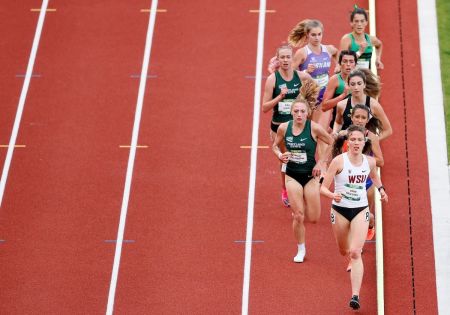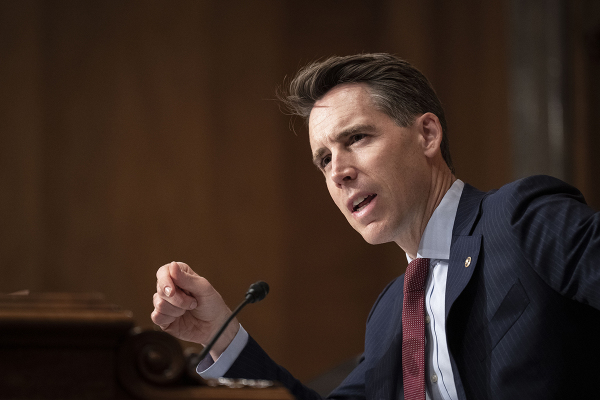Judge blocks Utah's ban on biological males competing in girls' sports

A judge has temporarily blocked the enforcement of a Utah law prohibiting biological males who identify as female from competing in girls' sports.
Judge Keith A. Kelly of the Third Judicial District Court for Salt Lake County issued a preliminary injunction Friday against the recently passed House Bill 11 in the case of Jenny Roe et al. v. Utah High School Activities Association et al. The injunction will remain in effect as the litigation continues.
In granting the motion for the injunction, Kelly clarified that "the effect of this preliminary injunction will not mean that transgender girls will automatically be eligible to compete on their school's girls' teams."
"Rather, it will allow them to compete only upon the commission's determination that their being able to compete is fair under all of the circumstances," Kelly explained.
The lawsuit was brought on behalf of three trans-identified minors and their parents by the American Civil Liberties Union of Utah, the National Center for Lesbian Rights, Wilson Sonsini Goodrich & Rosati and advocate Fred Rowley.
Debbie Roe, a parent of a trans-identified child is a plaintiff, said in a statement released Friday that she and her husband "are very relieved by this decision."
"We are grateful the court understood how much harm this law has caused, which has been a huge source of stress and trauma for our child," said Roe.
"Our daughter just wants the same chance as other kids to make friends and play on the team she loves. Today's ruling gives her the opportunity to do that."
House Bill 11 prohibited "a student of the male sex from competing against another school on a team designated for female students" and defined "sex" as the "biological, physical condition of being male or female, determined by an individual's genetics and anatomy at birth."
In March, Utah Gov. Spencer Cox vetoed the legislation, arguing that HB 11 lacked "nuance" when it came to protecting women's sports while also allowing trans-identified youth to participate in athletic activities.
"I also believe there is broad misunderstanding around the current rules regarding transgender participation in sports. In particular, from the testimony of many, there seems to be a belief that any biologically-born male could simply say he was transgender and begin participating in women's sports," stated Cox in his veto message.
"For many years now, the UHSAA has had in place a rule that only allows male-to-female transgender participation in women's sports after a full year of difficult transition hormone therapy and in consultation with a health care professional. This has likely prevented some participation and helped to even the playing field."
Later in March, the Republican-controlled legislature overrode the veto at a special session, with the state House of Representatives voting 56-18 and Senate voting 21 to 8 to approve the law.
Terry Schilling, president of the conservative advocacy group American Principles Project, said that the override indicated that the "movement to defend girls' sports continues to gain momentum."
"Utah's legislators were courageous enough to stand up to the governor, as well as his powerful left-wing supporters, and pass the legislation over his veto," said Schilling in a statement at the time.
"APP commends them for their effort to uphold biological reality, and we strongly encourage the remaining states without protections for female athletes to enact them before it's too late."
In a statement shared with media, Senate President Stuart Adams assured that the state's School Activity Eligibility Commission would do its best to ensure fairness in female athletics.
"Utah had the foresight to create a first-of-its-kind solution, a data-driven commission that will help ensure female athletes can continue to compete in a fair environment," Adams said. "With the commission, we are aiming to protect equitable and safe competition while preserving the integrity of women's sports. The commission will be constituted in the coming weeks."





















